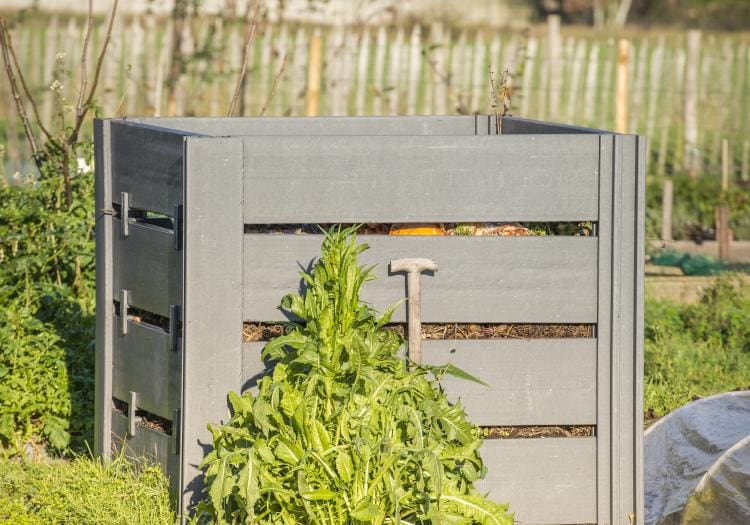RecoComposter
Delivery only £10 per order to most UK areas
Shop now, pay later.
Recycled plastic compost bin kit for recycling household waste
A fantastic eco-friendly product, the RecoComposter is an easy-to-build outdoor composting box which can be put together in a matter of minutes without the need for specialist tools, knowledge or expertise.
- Width: 100cm
- Depth: 120cm
- Height: 100cm
- Capacity: 1300L
- Made From: Recycled Plastic
- All construction accessories included
£300.00
Out of stock
Email when back in stock
Out of stock
Click here to ask a question
Tidy Up That Compost Heap With An Attractive Compost Bin
Every keen gardener appreciates the many benefits to be gained from making your own compost, and this attractive plastic compost bin is designed to fit into any outdoor space. Manufactured from recycled household plastic, this product is durable, weatherproof, UV resistant and rot and rodent proof. The added benefit of insulation means that heat is not lost to the environment which is a great feature for your compost heap. This well-constructed product has an almost unlimited lifespan and recycling your organic garden and kitchen waste in the compost bin has never been easier thanks to its protection from acids, salts and/or the microbial activity in the compost heap will not affect the construction of the compost bin. The product features an easy assembly, removal panels to access fresh compost and an attractive design that allows for optimal aeration to the compost heap.
Benefits of Composting
Home composting is the most environmentally-friendly way of dealing with kitchen and garden waste, plus it produces compost that can be used as an excellent soil improver. Composting is easy to do, can be done all year round with the peak in late summer to early winter, and can be done in any outdoor space. Although councils offer green waste collections, encouraging home composting is great as it does not involve heavy transport, with its associated environmental costs. If you would like to find out more about composting and compost heaps then visit this RHS Article.
How to Start a Compost Heap
Composting is a pretty simple process providing that you follow a few simple rules. Firstly, ensure that your compost heap is not subject to extreme temperatures or moisture as the process works best when conditions are kept constant. We recommend a compost bin to keep your compost heap tidy, allow for optimal aeration and insulation, and adds an attractive feature to your garden. Creating the perfect compost is about gauging the right balance. Aim for between 25 and 50 percent soft green materials (e.g. grass clippings, annual weeds, vegetable kitchen waste, or manure) to feed the micro-organisms. The remainder should be woody brown material (e.g. prunings, wood chippings, paper, cardboard, straw or dead leaves). Turning the heap adds air; the air is necessary for composting to occur. If the heap is too wet or becomes compacted, then the composting process is slower as less air is available. Ideally, place a lot of composting materials on the heap in one go, and turn it periodically (perhaps every month) to introduce air. Failure to turn the heap is probably the main cause of poor results.
If you would like to learn more about composting, it’s benefits and how to start then click on the video below which is a ‘beginner’s guide to composting’ made by the RHS.
https://www.youtube.com/watch?v=RKl2hJdMqfg
If you would like to find out more information about our compost bin product then please do not hesitate to contact us where a member of the friendly sales team can assist you.
| Weight | 100 kg |
|---|
